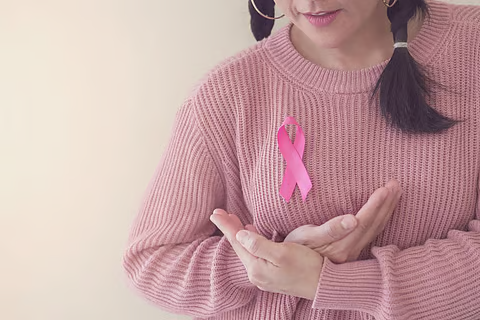
Breast cancer is one of the most common forms of cancer, but despite widespread awareness, many people still aren’t fully aware of the factors that contribute to its development. While genetics certainly play a role, many hidden and often overlooked causes can increase your risk. If you're concerned about your health or simply curious to understand more, it's crucial to consider the full range of potential causes and risk factors. Let’s dive into some of the key elements that could affect your likelihood of developing breast cancer.

1. Family History vs. Lifestyle Choices
It’s easy to assume that breast cancer is mainly hereditary, but did you know that lifestyle factors may have a significant impact as well? While having a family history of breast cancer does increase risk, most cases are not linked to genetics. Factors like your diet, exercise routine, alcohol consumption, and exposure to environmental toxins can play just as critical a role. For example, high-fat diets and lack of physical activity have been shown to contribute to increased breast cancer risk.
2. Hormonal Factors: More Than Just Age
Hormones are powerful regulators of many bodily functions, and when they’re out of balance, they can impact your breast tissue. Early menstruation, late menopause, and prolonged use of hormone replacement therapy (HRT) are all associated with a higher risk of breast cancer. Understanding your hormonal profile and working with your healthcare provider to monitor and manage hormonal imbalances can be crucial in reducing your risk.
3. Environmental Toxins: Hidden Threats
Did you know that the air you breathe, the water you drink, and the products you use may contain harmful chemicals linked to breast cancer? Endocrine-disrupting chemicals, such as BPA (found in plastics), pesticides, and certain flame retardants, can interfere with hormone regulation and potentially increase the risk of cancer. Being mindful of the products you use and making the effort to switch to non-toxic alternatives could be a simple but effective way to reduce your exposure to these hidden threats.
4. Radiation Exposure: Cumulative Risks
While many people associate radiation exposure with certain medical treatments, it’s important to realize that everyday sources of radiation also add up over time. Frequent X-rays, CT scans, and living in areas with higher background radiation can all contribute to your overall risk. It's important to have open discussions with your doctor about the necessity of certain medical tests and consider alternatives where possible.
5. Mental and Emotional Health: The Mind-Body Connection
Emerging research suggests that emotional stress may influence cancer risk. Chronic stress, depression, and unresolved trauma may weaken the immune system and increase inflammation, both of which can play a role in cancer development. Managing stress through mindfulness, exercise, and professional counseling can contribute to better overall health and potentially reduce your risk.
6. Nutrition: A Powerful Preventative Tool
A healthy diet is a powerful weapon in the fight against breast cancer. Studies have shown that diets rich in fruits, vegetables, and whole grains may help reduce the risk, while excessive consumption of red meat, processed foods, and sugar can increase it. Antioxidant-rich foods, such as berries, leafy greens, and nuts, support the body in fighting off free radicals, which are known to damage cells and increase the risk of cancer.
7. Exercise: A Natural Defense
Staying active isn’t just about fitness; it’s about health at the cellular level. Regular physical activity has been shown to lower the risk of developing breast cancer by regulating hormones, reducing inflammation, and improving overall immune function. Even moderate exercise, such as brisk walking or yoga, can be beneficial.
Taking Control of Your Health
While some risk factors are beyond your control, like genetics or age, there’s a lot you can do to reduce your chances of developing breast cancer. It all starts with awareness and action. By understanding the hidden causes, you can make informed choices that align with a healthier, more proactive lifestyle.
Remember: Early detection and regular check-ups are key. Consider speaking with your healthcare provider about how to monitor your health and risk factors. Together, you can create a personalized plan that empowers you to live a longer, healthier life.
Disclaimer: The information provided in this article is for educational purposes only and should not replace medical advice. Always consult with a healthcare professional for diagnosis and treatment options.







